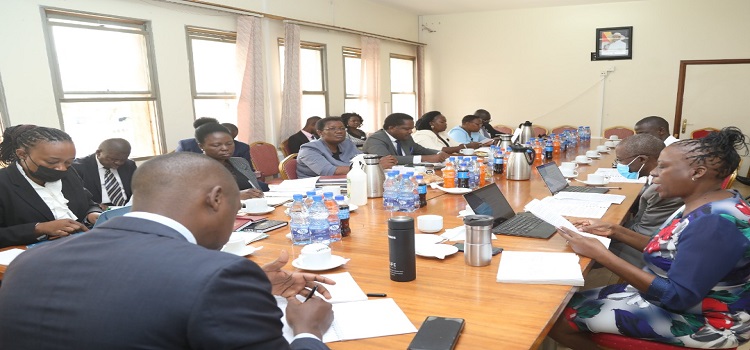Bill should focus on science and not trafficking-JCRC

Officials from the Joint Clinical Research Centre (JCRC) have asked Members of Parliament on the Committee on Health to process the Organ Donation and Transplant bill focusing on realities of science rather than human trafficking.
The Executive Director, JCRC, Dr. Cissy Kityo said the bill as it is dwells more on mitigating the illicit trade in human organs yet the bigger burden is the high costs of medical care Ugandans incur while seeking organ donors and transplant services abroad.
“Many citizens are seeking medical care from countries such as UK and India because there are no facilities in the country to deliver transplantation. The bill should be coming here to enable facilities to offer such services, to save many people from travelling abroad but it is focusing on fighting the illegal trade,” said Kityo.
She said this while appearing before the Committee on Tuesday, 16 August 2022.
She wondered why the bill was silent on cell or tissue donations in the country.
“The bill is silent about donation of egg or sperm and surrogacy which are already ongoing in the country. The existing law is also silent about blood cell donation,” she said.
She advised the committee to comprehensively review the list of organ, cell, and tissue transplants provided in the bill noting that the list is limited.
Dr. Kityo expressed discontent with the bill ring-fencing Mulago National Referral Hospital as a pioneer transplant centre saying there are other centres of excellence in specific organ transplant.
“What does it imply when Mulago is designated as a pioneer transplant centre? Will all forms of transplantation be initiated at Mulago Hospital?” she asked adding that, ‘transplant for cell and solid organs are very diverse and are unlikely to be simultaneously be provided by one centre’.
The Executive Director for Rubaga Hospital, Dr. Julius Luyimbazi who also appeared before the committee said if the law gazettes Mulago as a pioneer transplant centre, it might cause conflict in enforcement of standards at the hospital.
“A centre that is designated by the law is denied the benefit of designation by conformity to the standards set in the same law. This may introduce a compromise of standards at the national referral hospital which is meant to stand out as the model for other transplant centre,” said Luyimbazi.
Luyimbazi proposed that transplant centres be designated by the proposed Uganda Organ Donation and Transport Council following the standards provided in the law.
The committee chairperson, Dr. Charles Ayume said his committee will consult widely about what members termed as ‘the Mulago monopoly’.
“My thinking is Mulago may be flagging off or the one who will start because the subsequent clauses in the bill talk of identifying other transplant centers,” he said.
Ayume added that the committee will also consult about the qualifications of a transplant centre to include not only hospitals as provided in the bill.
“If we stick to hospitals, we would have denied other players the opportunity because there are centres in advanced stages of research on organ transplant,” said Ayume.
On striking a balance between human rights and realities of science, he said the committee will synthesize as much information as possible to cater for both science and human rights.
“Sometimes, we are much into human rights and forget the realities of science. Our task is to be able to make a law that accommodates all interest groups and benefits the end user,” said Ayume.
Hon. Esther Mbayo (NRM, Luuka District) said the committee will not be biased towards human rights but consult widely on issues relating to access, affordability and quality of health services.
“When you say the law is coming in because of illicit trade, I say no. We are looking at many things, the so much money we donate out there when our people go for transplant; it is a combination of so many things,” said Mbayo.
